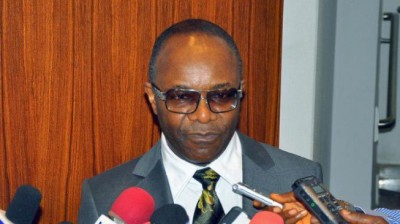
The Minister of State for Petroleum Resources, and Group Managing Director(GMD) of the Nigerian National Petroleum Corporation (NNPC), Dr. Ibe Kachikwu recently contemplated a strategic petroleum products reservefor the country. He was thinking about meetingemergency local demands.
Unfortunately we import products in its entirety.Weshould ponderover the reserveoption whenwe import with lean foreign exchange. It is also uneconomical whenoperations of four refineries have been hamstrung by long periods of inadequate maintenance resulting in shutdowns. Strategic Petroleum Reserve (SPR) as we know it globally is more from the crude point of storage. The United States established a Strategic Petroleum Reserve to counter- balance the power of Arab producers in the 1970s.
It now has 695 million barrels in reserve held in four sites along the Gulf of Mexico coast. The NNPC was established on the 1st of April 1977 to refine, treat, process and generally engage in the handling of petroleum for the manufacture and production of petroleum products and its derivatives.The NNPC managers have failed to address how four refineries, 22 depots (storage facilities) and 5001 kilometres of pipelines (for crude and multi-products)vanished into nothing. Ones drumbeats about6000 investment opportunities when you refine a barrel of crude oil had been handled with levity for pecuniary crude gains. When we refine locally there are advantageous chances for economic diversification along vertical linkages.
It is inexplicable that Nigeria’s petroleum discovered 60 years ago was surrendered to foreigners who refine products offshore and sell to us. We are still cap in hands for super majors to assist us with foreign exchange for products payments. Integrated oil companies (IOC) or super majors operating in Nigeria recently bailed out Nigeria with $200 million to import petroleum products overseas.
The upstream(exploration and production) petroleum sector is in the hands of super majors who own equipment, storage, terminal and export facilities.Current battle with them over production sharing contracts (PSC) is that the Federal Government is taking more than its share and so caused delays in crude loading programmes. The Federal Government owes oil super majors over $5 billion in the upstream joint venture cash calls. Nations that have developed and those that are emerging never looked for the easy way out. They found lasting solutions to complex problems but ours as a nation is prodigal that with the slightest challenge, we call for the sale of critical infrastructure bequeathed for posterity.
At independence in 1960 our peersin terms of development are some in the BRICS countries of Brazil, Russia, India, China and South Africa and some Asian tigers- Singapore, Indonesia, Malaysia.We are now the beautiful bride to be wooedwith all sorts of developmental aids. India and China in late 2015 summoned Nigeria and other African countries to summits promising them aids. We note that the Gulf Cooperation Council (GCC) members: Saudi Arabia, Qatar, Kuwait, United Arab Emirates, Oman and Bahrain were at developmental infancy at our independence.Some of these GCC countries in OPEC are now courtedby Nigeriafor oil supply freeze and to assist in tracking stolen petroleum funds.
These situations elicit enquiry into our petroleum resource managementand indeed national strategic thinking. Our refineries are not working for reasons of corruption, mismanagement and technical incompetence. One obvious fact that had emerged is the absence of methodical investigation to develop a plan of action based on facts discovered which research is. What is the position of research in Nigeria? An appointee posted to a research department is sent to “Siberia”in our parlance.
Research offices and efforts are never fundedwhereas research drives the world. We all want the luxuries of life without imagining the strategic thought that produced them.
This structural deficiency is the bane and laggard of our development. With threats of carbon emissionsand the campaign on reduction of fossil fuels usage we must be more ingenious, sagacious, pragmaticand practical to join the science and technology train. Anairplane,fully powered by the suncalled Solar Impulse 2 began its circumnavigation around the world in March 2015 in Abu Dhabi and is scheduled to cross the Atlantic by June 2016.
Thiscalls for national strategic thinking. Artificial photosynthesis as a new source of renewable liquid fuels for cars, ships and planes is what U.S. researchers are trying to perfect. The breakthrough in artificial photosynthesis seeks to mimic the action of plants in capturing energy from the sun to produce biomass by breaking down water and combining it with carbon dioxide. Number one auto maker, Toyota in October 2015 announced plans to transform its product line with the goal of selling very few if any conventional gasoline vehicle by 2050.
It will manufacture vehicles that are hybrids or will run on fuel cells. It plans to sell 30,000 fuel cell vehicles by 2020 and gradually divest from gasoline engine. Plug in electric vehiclesmanufacturers have not embraced large scale productionnow because recharging time is excessive but its production and usage would shape the direction of world automobile by the end of the 21st century.
Saudi Arabia is not left out of the quest to reduce global warming. Saudi Aramco has opened up a Research and Development facility in Detroit as part of its drive to expand its global fuel technology programme to reduce the overall environmental impact, cost and complexity of both current and future fuel engine systems. Not minding our indeterminism, it behooves the President Muhammadu Buhari’s administration to address Nigeria’s myriads of petroleum problems imbued in science and technology. This administration must enlist our patriotic, brilliant, experienced, young, dynamic scientists and other professionals in the management of research and development

No comments:
Post a Comment